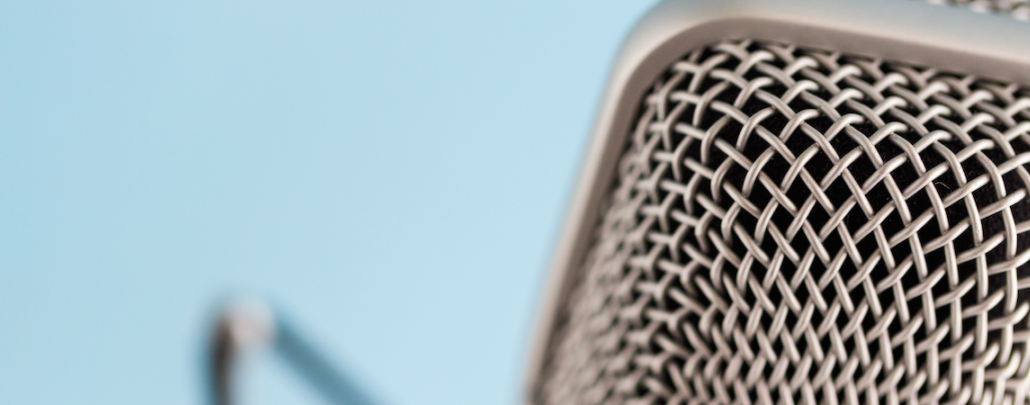Save 50% on a 3-month Digiday+ membership. Ends Dec 5.

Podcasting is still in its infancy, and big brand advertisers have typically been wary of pouring money into the medium because its scale and audience are hard to gauge.
Podcast advertising is estimated to tally $35 million this year, accounting for just 0.02 percent of U.S. ad spending, according to Zenith. But that’s not stopping many media companies testing the waters with podcasting and different advertising models to get brands on board.
Atlas Obscura is the latest to venture into the medium. Last week, the online travel and discovery site introduced “Escape Plan,” a 35-minute podcast that took listeners to New York’s Hudson Valley to explore Kykuit, the home of the Rockefeller family, and the historic West Point Foundry in Cold Spring. The podcast, based on day-long road trips, fits perfectly within the company’s editorial scope aimed at adventure seeking millennials. But rather than traditional host-read ad messages, the podcast wove Zipcar, an Avis subsidiary, into the content itself.
On the podcast, Atlas Obscura’s CEO David Plotz is joined by a producer and a guest who doesn’t know where they’re going (in this case, Atlas Obscura’s editor-in-chief, Reyhan Harmanci). When they hit a toll road, Plotz tells the listener that Zipcar has an E-ZPass and that it takes care of tolls, parking, insurance and gas.
While Plotz isn’t critical of traditional podcast advertising, the former Slate editor, who continues to contribute to Slate’s Political Gabfest podcast, said the partnership with Zipcar worked because it shared Atlas Obscura’s goal of exploring and taking listeners on a journey.
“With traditional podcast advertising, you still have to step outside the show for a moment to hear it,” said Plotz. “You have to pause and say, ‘Let’s hear from our first sponsor.’ It may have nothing to do with the show, and it disrupts the flow.”
The podcast does include traditional ads that were read by Plotz about Zipcar in the beginning, middle and end, but it also hints in more subtle ways at Zipcar, too. For example, at 22 minutes in, Plotz explains to Harmanci how he wanted a Prius (Toyota). “We could have had an economy car or an SUV, but we wanted something quiet, so I went and looked for Priuses, and there were just a gazillion,” and he went on to describe how many cars there were to choose from in New York.
Ad position: web_incontent_pos1
Plotz wouldn’t say how the deal compared financially to traditional podcast ads. Traditionally, an hourlong show could have six to eight host-read ads, which typically fetch $15 to $30 CPMs, according to Midroll Media, a podcast advertising network.
Currently, advertisers only know how many times a podcast has been downloaded, not listened to, so they have no way of knowing if ads are being skipped, although a common way to get around this is by using discount codes to track how many listeners then engage with brand. “Podcasting has not attracted substantial support from mainstream advertisers,” said Jonathan Barnard, head of forecasting at Zenith. “The medium lacks measurability and trackability.”
But Lex Friedman, evp of sales and development for Midroll, said while advertisers do question listener measurement more than anything else, major brands are beginning to realize podcasts offer a way to reach ad-avoiding millennials. Midroll’s clients includes Spotify, T-Mobile and Netflix.
Edison Research estimates that 98 million people in the U.S, or 36 percent of the population, listen to podcasts. That figure is growing slowly every year and is up from 33 percent in 2015. Tom Webster, vp of strategy and marketing at Edison Research, said sponsored content is one of the oldest forms of advertising, and when companies and brands are well paired, it’s very effective. But he said advertising on the medium requires brands to be adventurous. “They’re not necessarily buying an audience; they’re buying the potential of an audience.”
Sponsored content, or native advertising as it also goes by, is becoming an larger part of publishers’ plans to diversify revenue streams. One knock is that if not properly disclosed, it can confuse the audience as to what’s an ad and what’s journalism. The web page for “Escape Plan” states in multiple places that the podcast is sponsored by Zipcar, and Plotz discloses the partnership at the beginning and end of the podcast.
Ad position: web_incontent_pos2
Plotz wouldn’t reveal how many times the podcast has been downloaded so far, and said it will crunch the figures with Zipcar before making further plans.
“We’ll track the data and talk with Zipcar in a few weeks,” he said. “This was a one-off, but with a plan, we can turn it into a series.“
More in Media

What publishers are wishing for this holiday season: End AI scraping and determine AI-powered audience value
Publishers want a fair, structured, regulated AI environment and they also want to define what the next decade of audience metrics looks like.

Digiday+ Research Subscription Index 2025: Subscription strategies from Bloomberg, The New York Times, Vox and others
Digiday’s third annual Subscription Index examines and measures publishers’ subscription strategies to identify common approaches and key tactics among Bloomberg, The New York Times, Vox and others.

From lawsuits to lobbying: How publishers are fighting AI
We may be closing out 2025, but publishers aren’t retreating from the battle of AI search — some are escalating it, and they expect the fight to stretch deep into 2026.
Ad position: web_bfu